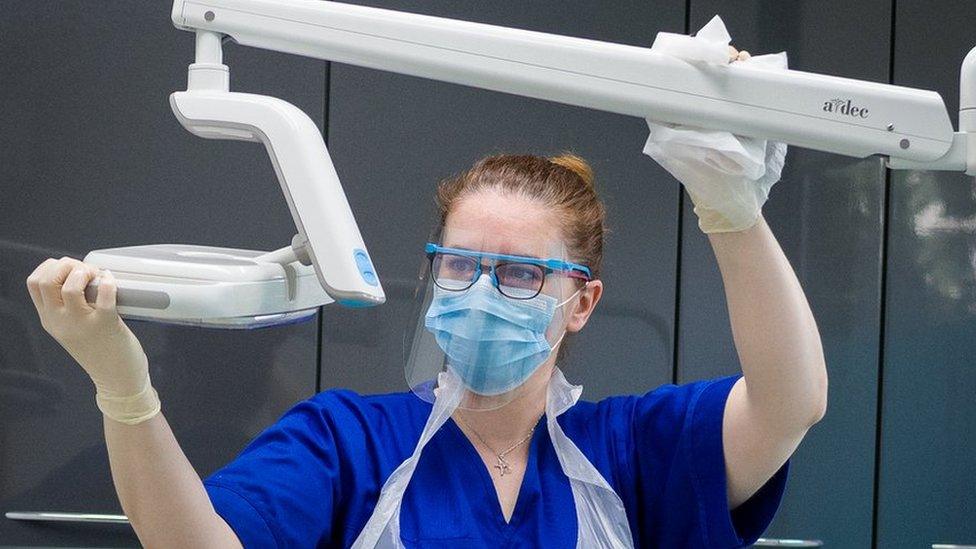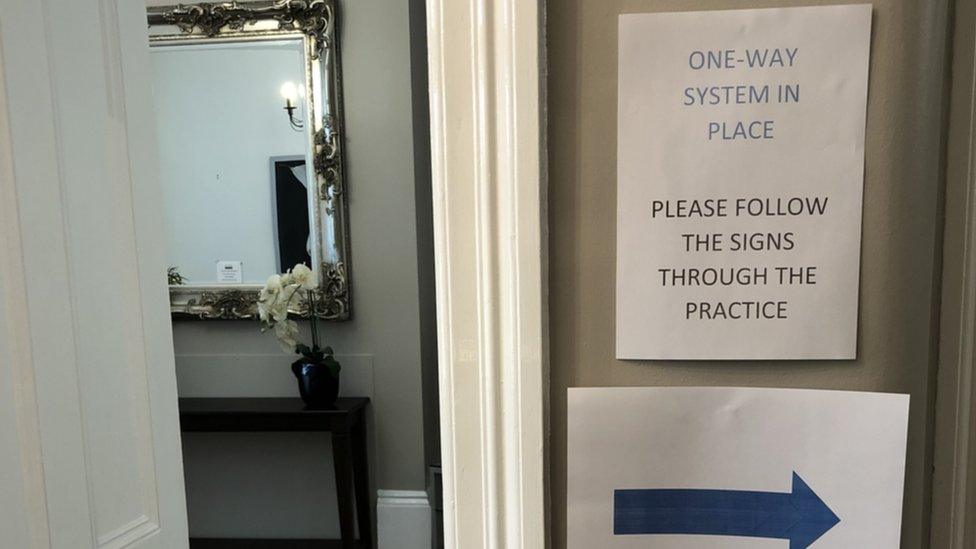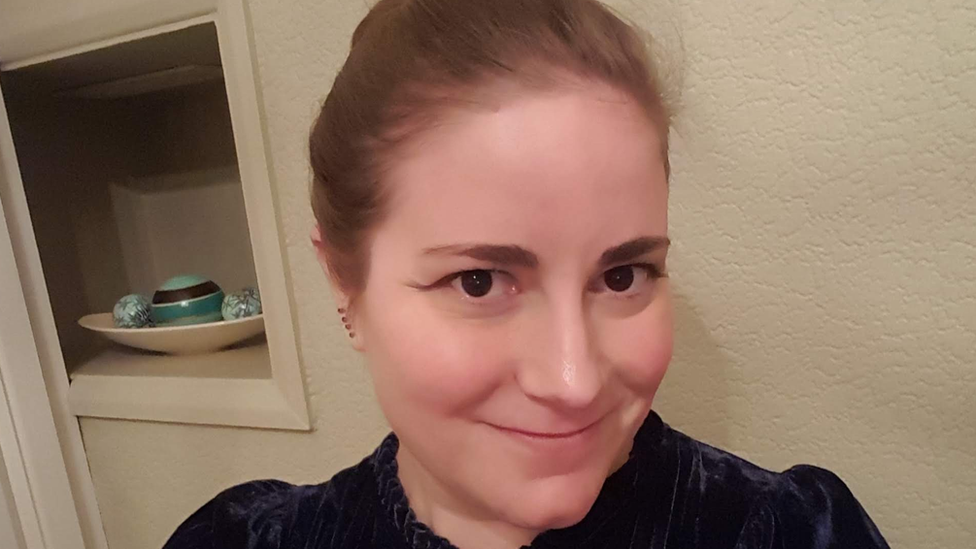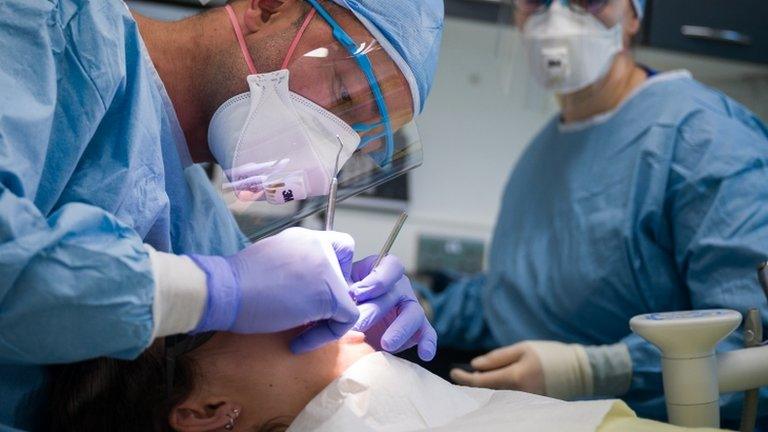Coronavirus: No return to 'business as usual' for dentists
- Published

The British Dental Association (BDA) has warned there will be no return to "business as usual" for dentistry in England.
Practices were told last week that they could reopen from Monday 8 June, if they put in place appropriate safety measures.
But some dentists say it was not enough warning and they lack necessary kit.
A poll of 2,053 practices in England suggests that just over a third (36%) plan to reopen on Monday.
"Anyone expecting dentistry to magically return on Monday will find only a skeleton service," says BDA chair Mick Armstrong.
"Those practices reopening now face fewer patients and higher costs and will struggle to meet demand."
Why aren't more practices reopening?
The BDA poll identified a shortage of personal protective equipment (PPE) as one of the major challenges to reopening, with only one third of practices saying they had enough to provide face-to-face care.
The BDA says there are about 10,000 dental practices in England.

A SIMPLE GUIDE: How do I protect myself?
AVOIDING CONTACT: The rules on self-isolation and exercise
WHAT WE DON'T KNOW How to understand the death toll
TESTING: Can I get tested for coronavirus?
LOOK-UP TOOL: Check cases in your area

One practice told the BBC it has been asked to donate its previous stock of PPE and was struggling to find new supplies in time for Monday.
"We have a week to get it all, which simply isn't possible", says Sophia Joseph, an NHS dentist practice manager based in Sheffield.
"Apart from actually finding the equipment, there are other problems. Costs of this equipment have gone up from £5 to £50 for boxes of simple masks," she says.

Sophia Joseph says her practice has been putting in place social distancing measures, but won't open in time for Monday
The BDA poll also found 60% of practices intend to reopen by the end of June. However, services are likely to be very limited at first.
Ms Joseph believes that official guidance arrived too late for dentists to properly prepare.
"We now have one working day to implement this 62-page document. It won't be possible to open on Monday. We need to train our staff, as well as organising the procedures we need to follow."
'Feeling desperate'

Lucinda Beesley has been unable to find treatment after a crown fell out
All routine dental care in England was suspended on 25 March, in order to help reduce the spread of coronavirus.
Since then, patients with emergencies are meant to be referred to urgent dental care 'hubs' by their local dentist.
More than 550 of these centres have been created to provide emergency treatment while meeting social distancing requirements.
DIY dentistry: What is safe to do to your own teeth?
Despite this, some patients have been unable to find treatment.
Lucinda Beesley, 40, from Hatfield in Hertfordshire, has been suffering after she lost a crown more than a week ago.
"I am in a lot of pain. I can't eat, I've been surviving on soup. I tried to fix it myself with a temporary kit, but that's made it worse", she says.
Even though she was given the numbers of two local dentists by NHS 111, Ms Beesley says that both practices told her that they don't intend to open on Monday.
"I've been told lots of different things, given numbers of different people", she says.
"I am feeling desperate".
How will going to the dentist be different?
Going to the dentist is likely to be a very different experience once practices do reopen.
Social distancing measures will mean practices are likely to treat far fewer people.
The chief dental officer for England has asked dentists to consider a range of measures before reopening, including:
Limiting use of waiting areas, with patients waiting outside if they arrive early
Waiting rooms chairs spaced 2m apart
Screening staff on a daily basis
Installing physical barriers, such as a plastic shield, in reception areas
One dentist told the BBC they would be asking patients to wait in their cars and send a text message when they arrived. A dental nurse will then collect them at the time of their appointment.
Sara Hurley, chief dental officer for England, said: "We'll continue to work with dentists, and support them to offer safe care, using latest guidance from PHE and government on PPE [personal protective equipment] and infection control."
Follow Tom on Twitter, external
- Published29 May 2020
